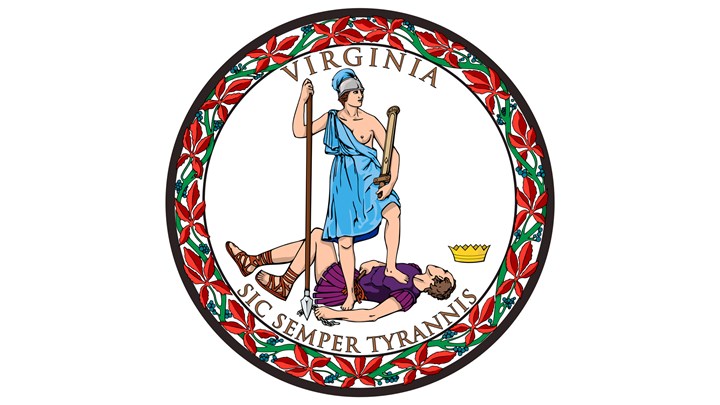
by Brian McCombie - Friday, April 4, 2025

When a state’s governor vetoes legislation that would have greatly restricted Second Amendment (2A) rights, the story line goes like this: Governor secures 2A rights with veto pen.
Well, true enough. But the “hidden story,” if you will, is that such vetoes can also help secure wildlife conservation and preserve hunting.
That’s one important way to view the veto of two dozen anti-2A bills that arrived at the desk of Virgina Gov. Glenn Youngkin in late March. As noted by the NRA Institute for Legislative Action (NRA-ILA), “Similar to last [legislative] session, Gov. Youngkin disposed of egregious legislation that would have emboldened criminals and left peaceable Virginians defenseless.”
In addressing the current anti-gun measures, NRA-ILA explained, “The bills vetoed by Gov. Youngkin … included attempts to restrict the constitutional rights of 18- to 20-year-old adults … and [to] enact a mandatory waiting period to take possession of a legally purchased firearm. In addition, the vetoed legislation would have banned a wide range of commonly owned firearms used by Virginians to hunt, compete and for self-defense.”
Those commonly owned firearms were the so-called “assault firearms” that would have been banned outright by SB 1181. These same firearms would have been illegal for anyone under the age of 21 to purchase or possess under SB 848. Hunting and wildlife conservation certainly would have been impacted without Gov. Youngkin’s opposition.
As we noted here at NRAHLF.org, the financial contributions to American wildlife conservation generated by the sale of firearms, ammunition, archery and angling equipment, and a fuel and small engine tax, amounted to $1.3 billion in 2025 alone.
This funding is generated by the Wildlife and Sport Fish Restoration Act of 1937, commonly known as the Pittman-Robertson Act (P-R) in honor of its congressional sponsors, “that imposes an 11 percent tax on firearms, ammunition and archery equipment. The manufacturers turn over the excise taxes that sportsmen and women pay to the Department of Interior’s USFWS for distribution to the states using a formula based on the area of the state and the number of its licensed hunters. The revenue is combined with license, permit and stamp fees paid to state wildlife agencies by hunters, anglers, trappers and recreational shooters.”
Since its launch in 1937, the P-R Act has invested a whopping $29 billion-plus in wildlife conservation, funding programs to monitor and manage our nation’s fish and wildlife resources, support hunter and aquatic education, and improve access for outdoor activities like hunting, fishing and boating.
But had the above proposed bills in Virginia gone forward, Virginia citizens would not have been able to purchase and use America’s most popular rifle, the AR-15, or similar models. AR-15s are very popular with coyote and other varmint hunters and are used for medium sized game too. And their big brother AR-10s, in calibers like 6.5 Creedmoor and .308 Win., would no longer be available to big-game hunters, either.
The “assault firearms” definition used in both the aforementioned bills was so broad that many semi-automatic shotguns used by hunters would no longer be available either.
Under SB 1181, a semi-automatic shotgun was an “assault firearm” if it had “(i) a folding, telescoping, or collapsible stock; (ii) a pistol grip that protrudes conspicuously beneath the action of the shotgun; (iii) the ability to accept a detachable magazine.” Translation: Goodbye many of the most popular turkey hunting shotguns on the market today built with pistol grips.
As the NRA and this website regularly note, such measures also negatively impact a state wildlife agency’s efforts to recruit, retain and reactivate hunters and recreational shooters, an initiative known as the R3 movement. Also addressing this point, groups such as the Congressional Sportsman’s Foundation wrote a letter to Gov. Youngkin noting that one impact of SB 848 and its banning of various firearms from those under 21 years of age “would be extremely detrimental to current efforts to recruit, retain and reactivate (R3) hunters and recreational shooters to the outdoor sporting community.” The letter also shared how SB 848 and SB 1181 would have reduced conservation funding in Virginia by banning the sale and use of many of the most popular firearms available today. This last point is critical considering the letter noted that approximately 77 percent of the budget for Virginia’s Department of Wildlife Resources is “comprised of funds directly generated by sportsmen and women.”
Seeing not only the Second Amendment issues inherent in these bills but understanding the broader conservation implications, Gov. Youngkin used his veto powers.
E-mail your comments/questions about this site to:
[email protected]
Proudly supported by The NRA Foundation and Friends of NRA fundraising.
